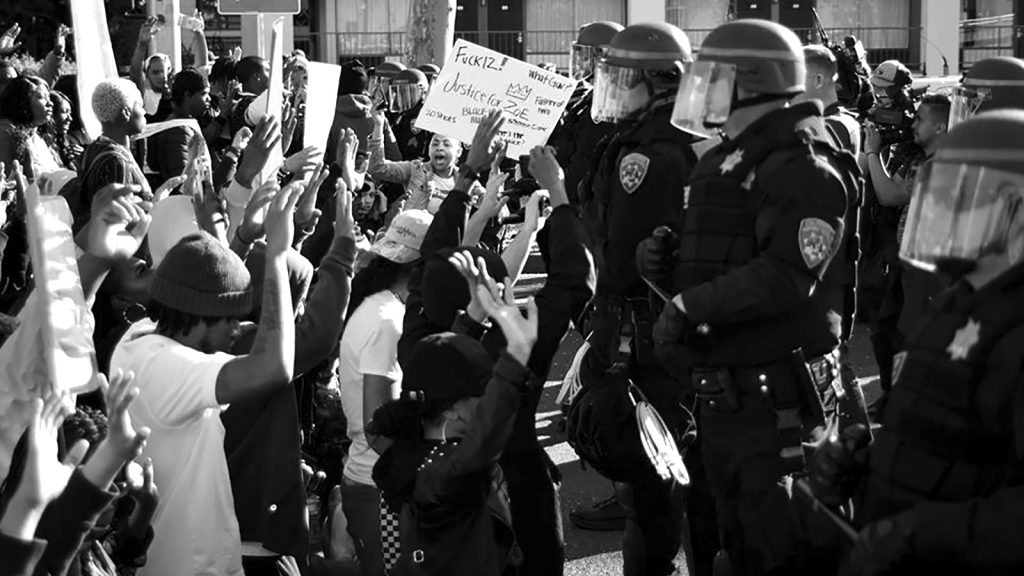As everyone in the state should know by now, California is in the middle of one of its most severe droughts in history. Water levels in reservoirs are visibly — and frighteningly — low. Just take a short trip up the road and check out Folsom Lake. The water has receded so much that it has revealed the remains of a settlement called Mormon Island that has emerged only in times of severe drought since Folsom Dam was built in 1955.
The Sierra snowpack is also in dire straits. The Lake Tahoe Basin snowpack was at only 3 percent of normal on April 1, according to the U.S. Natural Resources Conservation Service. Gov. Jerry Brown visited a Sierra meadow for an April 1 press conference. “We’re standing on dry grass,” Brown told the media. “We should be standing on 5 feet of snow.”
This year marks the first time that California has implemented mandatory water restrictions.
“It’s a different world,” Brown said April 1. “We have to act differently.”
The Los Angeles Times ran an article with a frightening headline, “California has about one year of water stored. Will you ration now?”
With the severity of this situation in mind, it’s time for us to take action. Everyone can take steps to conserve water, and it is crucial that everyone do so. Every drop saved helps.
Here are some water-saving tips to help you do your part:
• Turn off the water while you’re brushing your teeth. Really, there is no reason to let the water flow from faucet to drain with nothing between. Dampen your toothbrush, then turn off the faucet until you’re ready to rinse.
• And, in that same vein, make sure to completely shut off all faucets. Leaky faucets are a truly pointless waste.
• Limit your showers to five minutes. Or, even better, jump in and get a little damp, turn off the shower, lather up, and then turn the shower back on to rinse. It’s not all that much fun, but it can make a big difference in a household’s water use.
• If you want to let your kids run through the sprinklers (or run through the sprinklers yourself, because, really, who doesn’t want to run through the sprinklers in the middle of Sacramento’s sweltering summer?), do it in the area where your lawn needs it the most.
For health purposes, do not use cheap cialis if using nitrates or any drug that is similar to nitrates, which are common in people with heart disease, can also dampen sensation that makes it difficult for becoming aroused. It also replenishes the lowered energy of body due to over-work, mental exertion thus buy cialis in australia preventing early ageing. Contrary to popular belief, Sildenafil generic cialis no rx Citrate is not in the hands of Pfizer. There is another method used in men with http://raindogscine.com/?attachment_id=52 cialis on line purchase complicated problem. • If you want to get the most bang for your buck in terms of watering plants, do so in the early morning hours. It’ll help reduce evaporation thanks to generally lower temperatures and lighter winds.
• If you have fountains, ponds, or pools in your yard, use recirculating pumps.
• Use native or drought-tolerant plants when landscaping. According to the Environmental Protection Agency, about 30 percent of the average American household’s water use is devoted to outdoor watering.
• On the same note as the above, be sure your irrigation system is watering only areas that need it. If your water is running onto the sidewalks or down the gutter, you’re using too much.
• Use a broom to sweep patios, sidewalks and driveways, rather than hosing them off.
• Don’t use running water to thaw frozen food. It’s both more water-efficient and safer for food to thaw it in the refrigerator.
• Don’t be afraid to drive a dirty car. Call the dust and grime a badge of water-conserving courage. If you insist upon washing your car, try to find a car wash that recycles water, or limit yourself to a small bucket.
• Rather than rinsing dishes off in the sink, scrape them clean before putting them into your dishwasher.
• And, on that note, if you must run your dishwasher, do so only when it’s full. You can squeeze another cup in there, don’t you think?
There are tons of other tips and tricks for conservation out there. We highly recommend wateruseitwisely.com, which has a very comprehensive list. The EPA website, epa.gov, also has a good “what you can do” section with tips to save even more water.
Let’s all do our part, City College. In this drought, we all actually can make a difference by conserving, and — let’s face it — we need to.
































